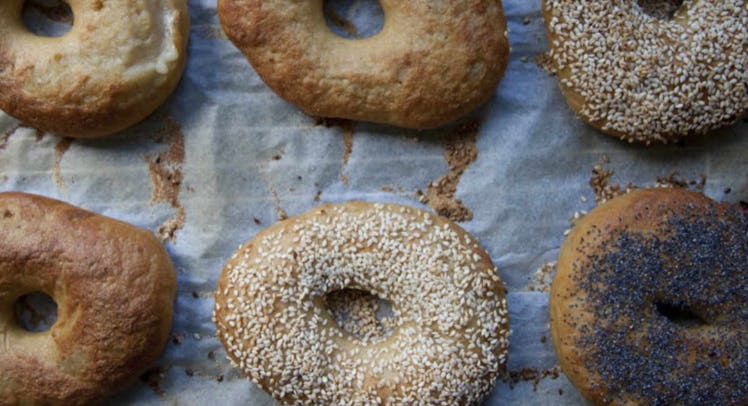How a Poppy Seed Bagel Nearly Caused a Mom to Lose Custody of Her Newborn
Despite an unambiguous Supreme Court ruling, new moms are still being involuntarily screened for drugs.

It’s almost like a real-life episode of Seinfeld. Except instead of Elaine testing positive for opium before a trip with J. Peterman, a woman from Baltimore County, Maryland, tested positive for opiates while giving birth. The culprit in both cases, however, was the same: poppy seeds.
When Elizabeth Eden’s doctor informed her after delivering her first baby that she had tested positive for drugs, she immediately informed him that she’d eaten a poppy seed bagel, a food well-documented for causing failed drug tests. It didn’t matter. The hospital had already reported her to the state and her baby was taken away, forced to stay in the maternity ward for an extra five days.
Despite the fact that the “traumatizing experience” was ultimately resolved, Eden was still assigned a caseworker to regularly inspect her house. The incident also again raises questions about the constitutionality of drug testing new mothers without consent. Well, not new questions.
The Supreme Court decided in 2001 that involuntarily testing pregnant women for drugs is a blatant violation of their Fourth Amendment “search and seizure” rights. With little regard for the court’s decision, some local and state governments have found various reasons to continue with the invasive (and illegal) practice; many make the argument that new mothers be screened for drugs as a precaution against neonatal abstinence syndrome.
And while the highest court in the land has deemed involuntary drug tests unconstitutional, the debate rages on. Obviously, screening only “at-risk” mothers introduces a level of subjectivity into the equation that would require “making a lot of assumptions [about the mother] and would unfairly target low-income women,” gynecology professor Jessica Young told the American Association for Clinical Chemistry in 2016. On the flip side, making everyone do it leaves innocent people up for fruitless scrutiny.
This article was originally published on